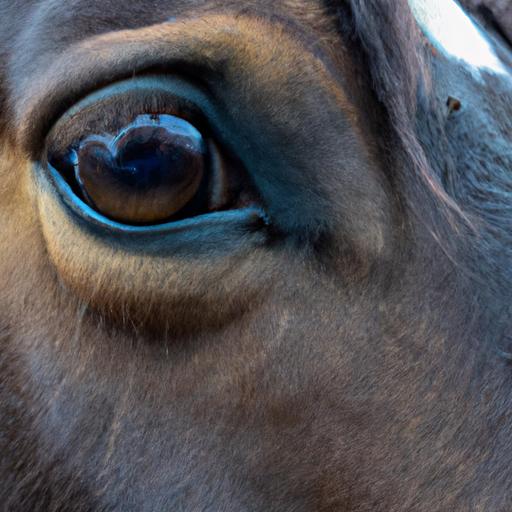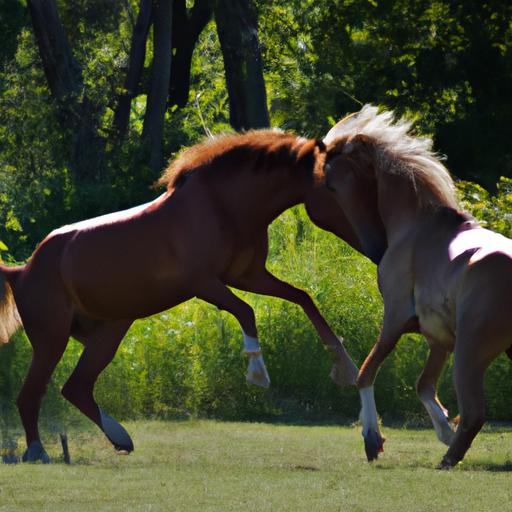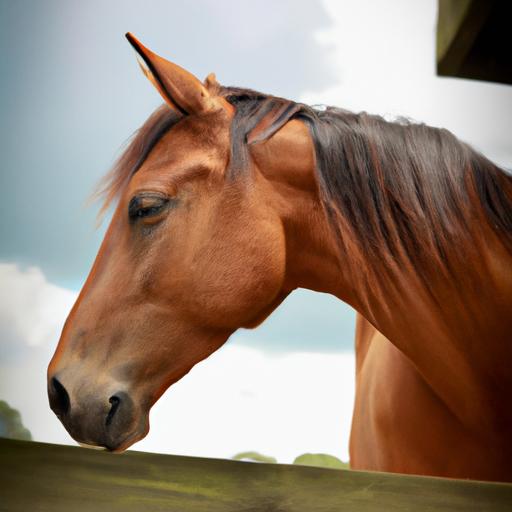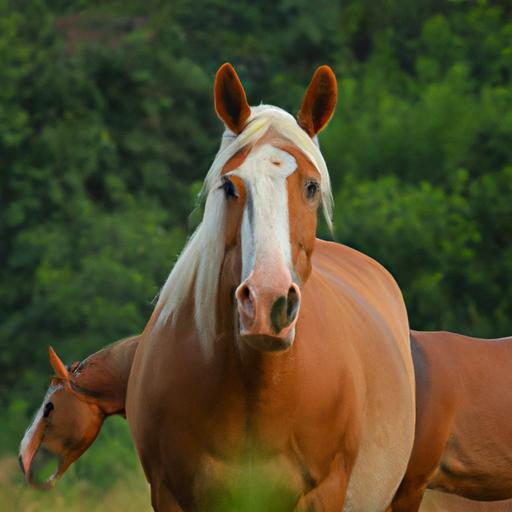Uncover the mysteries of horse behavior changes and discover effective ways to address shifts in your equine companion’s demeanor. Find expert insights here.
As horse owners and enthusiasts, we share an unspoken connection with these magnificent creatures. We witness their strength, grace, and loyalty firsthand. However, there are times when our equine companions undergo behavior changes that leave us puzzled and concerned. In this article, we will delve into the realm of horse behavior changes, understanding their significance, and exploring effective ways to address them.
Definition of Horse Behavior Changes

Before we embark on this journey, let’s establish a clear understanding of what horse behavior changes entail. Horse behavior changes refer to alterations in the way horses think, act, or react to various stimulThese changes can manifest in different forms, such as aggression, fearfulness, withdrawal, or hyperactivity. It’s crucial to recognize that these shifts are not random but rather a response to internal or external factors affecting their overall well-being.
Importance of Understanding Horse Behavior Changes

As responsible horse owners, it is vital to comprehend the significance of these behavior changes. By recognizing and deciphering the messages conveyed through altered behavior, we gain valuable insights into our horse’s emotional state, health, and overall happiness. Understanding the underlying causes of behavior changes allows us to provide the necessary support and interventions, ensuring our equine companions receive the care they require.
Brief Overview of the Article’s Content

Now that we have laid the foundation, let’s take a glimpse into what lies ahead in this article. We will explore the factors influencing horse behavior changes, common triggers that lead to these shifts, and the signs and symptoms to watch for. Furthermore, we will delve into the various types of behavior changes, including aggression, fearfulness, withdrawal, and hyperactivity. Understanding the causes behind these changes is crucial, and we will examine environmental factors, health issues, and dietary influences. Lastly, we will discuss effective ways to manage and address horse behavior changes, emphasizing the importance of professional evaluation, training techniques, environmental enrichment, and dietary adjustments.
Get ready to unlock the secrets behind your horse’s behavior changes and embark on a journey of understanding, compassion, and effective intervention. Together, we will navigate the intricate world of horse behavior changes, ensuring a harmonious bond between you and your equine companion. So, let’s saddle up and embark on this enlightening adventure!
Understanding Horse Behavior Changes
Understanding horse behavior changes is crucial for maintaining a harmonious relationship with our equine companions. Let’s delve deeper into this topic by exploring the factors that influence these changes, the common triggers that lead to behavior shifts, and the signs and symptoms we should be attentive to.
Factors Influencing Horse Behavior Changes
Several factors can influence horse behavior changes, and being aware of them can help us better comprehend our horse’s actions. Environmental factors, such as changes in living conditions, social interactions, or the presence of new stimuli, can significantly impact their behavior. Additionally, health issues, pain, or discomfort can manifest in altered behavior patterns. Nutritional imbalances or deficiencies can also contribute to behavior changes in horses. By recognizing these factors, we can take appropriate steps to address them and enhance our horse’s overall well-being.
Common Triggers for Behavior Changes in Horses
What are the common triggers that can cause behavior changes in our equine companions? Horses are highly sensitive animals, and even seemingly minor events can have a profound impact on their behavior. Changes in routine, such as alterations in feeding schedules or exercise regimens, can lead to shifts in their temperament. An abrupt change in their social dynamics, such as the addition or removal of a herd member, can also trigger behavior changes. Furthermore, stressful situations, including transportation, competitions, or veterinary procedures, can cause anxiety and subsequent alterations in behavior. By being aware of these triggers, we can proactively manage them and minimize their impact on our horse’s behavior.
Signs and Symptoms of Horse Behavior Changes
Recognizing the signs and symptoms of behavior changes is essential for early intervention and support. Aggression, such as biting, kicking, or charging, may indicate underlying issues. Fearful or anxious behavior, such as excessive spooking, trembling, or avoidance, can signal emotional distress. Withdrawn behavior, such as lethargy, decreased social interactions, or loss of appetite, may be indicative of depression. Hyperactivity or excitability, including excessive energy, restlessness, or difficulty focusing, can also be a sign of behavior changes. By closely observing our horse’s behavior and being attuned to these signs and symptoms, we can promptly address any underlying issues and provide the necessary care and support.
Understanding the factors, triggers, and signs of horse behavior changes paves the way for effective intervention and support. In the next section, we will explore the various types of behavior changes horses may exhibit, shedding light on their unique characteristics and underlying causes. So, let’s continue our journey into the fascinating world of equine behavior!
Types of Horse Behavior Changes
As we delve deeper into the realm of horse behavior changes, it becomes evident that these shifts can manifest in various forms. Understanding these different types of behavior changes allows us to better identify and address the needs of our equine companions. Let’s explore some common types of behavior changes observed in horses.
Aggressive Behavior Changes in Horses
Aggression in horses can be a cause for concern and requires careful attention. It may present itself as biting, kicking, charging, or displaying territorial behavior. Aggressive behavior changes can occur due to various factors, including pain, fear, dominance issues, or improper handling. Identifying the underlying triggers and seeking professional guidance is crucial for effectively managing and addressing aggressive behavior changes in horses.
Fearful or Anxious Behavior Changes in Horses
Horses are sensitive creatures, prone to experiencing fear and anxiety. Behavior changes associated with fear or anxiety may include excessive spooking, bolting, refusal to cooperate, or displaying signs of nervousness. These changes can stem from traumatic experiences, lack of socialization, or environmental stressors. Creating a safe and supportive environment, implementing desensitization techniques, and seeking professional assistance can help alleviate fearful or anxious behavior changes in horses.
Depressed or Withdrawn Behavior Changes in Horses
Just like humans, horses can experience periods of depression or withdrawal. Behavior changes associated with this state may include decreased appetite, lethargy, isolation, or a lack of interest in activities. Depressed or withdrawn behavior changes can result from various factors, such as changes in routine, social isolation, or underlying health issues. It is essential to seek veterinary advice to rule out any underlying medical conditions and provide emotional support and enrichment to help horses bounce back from this state.
Hyperactive or Excitable Behavior Changes in Horses
Hyperactivity or excessive excitability in horses can pose challenges in training and handling. Behavior changes associated with hyperactivity may include restlessness, excessive energy, difficulty focusing, or being easily startled. These changes can be influenced by factors such as diet, lack of exercise, or genetic predisposition. Establishing a consistent exercise routine, providing mental stimulation, and considering dietary adjustments can help manage and channel the energy of horses experiencing hyperactive behavior changes.
By understanding the different types of behavior changes in horses, we can tailor our approach to address their specific needs. Whether it’s aggression, fearfulness, depression, or hyperactivity, recognizing these changes and seeking appropriate interventions will allow us to nurture a harmonious bond with our equine companions. Stay tuned as we explore the causes behind these behavior changes in the upcoming sections.
Causes of Horse Behavior Changes
Horse behavior changes can be influenced by a variety of factors, ranging from environmental conditions to underlying health issues and dietary influences. By understanding these causes, we can better address and manage the behavior changes our horses experience.
Environmental Factors Affecting Horse Behavior Changes
The environment plays a significant role in shaping a horse’s behavior. Changes in their surroundings, such as alterations in stabling, pasture, or social dynamics, can lead to behavioral shifts. Horses are highly sensitive creatures, and disruptions in their familiar environment can trigger stress, anxiety, or even aggression. It is crucial to provide a stable, consistent, and enriching environment to minimize behavior changes. Regular turnout, social interaction with other horses, and a calm, organized stable routine can contribute to a sense of security and stability for our equine companions.
Health Issues and Pain-Related Behavior Changes in Horses
Just like humans, horses can experience health issues that impact their behavior. Physical discomfort, pain, or underlying medical conditions can lead to behavior changes. Horses may display aggression, reluctance to be ridden, or exhibit signs of depression or withdrawal when they are in pain. It is vital to work closely with a veterinarian to identify and address any underlying health issues. Regular veterinary check-ups, dental care, and appropriate pain management can help alleviate behavior changes caused by physical discomfort.
Dietary and Nutritional Influences on Horse Behavior Changes
Believe it or not, the diet and nutrition of a horse can also influence their behavior. Imbalances in their diet, such as excessive sugar or starch intake, can lead to hyperactivity or mood swings. Additionally, deficiencies in essential nutrients, such as vitamins and minerals, can negatively impact a horse’s behavior and overall well-being. Consulting with an equine nutritionist can help ensure that your horse receives a balanced and appropriate diet tailored to their specific needs, reducing the likelihood of behavior changes caused by nutritional imbalances.
By understanding the environmental, health, and dietary factors that contribute to horse behavior changes, we can take proactive steps to prevent or manage them effectively. Remember, a holistic approach that considers all aspects of a horse’s well-being is key to nurturing a harmonious bond and maintaining their emotional and physical health.
Managing and Addressing Horse Behavior Changes
As horse owners, we have a responsibility to address and manage behavior changes in our equine companions effectively. By taking proactive measures, we can ensure their well-being and maintain a harmonious partnership. Let’s explore some key strategies for managing and addressing horse behavior changes.
Importance of Professional Evaluation and Diagnosis
When faced with behavior changes in our horses, seeking the expertise of a professional is paramount. A skilled veterinarian or equine behaviorist can conduct a thorough evaluation to identify any underlying medical or psychological factors contributing to the shifts in behavior. Their expertise and knowledge enable them to provide an accurate diagnosis, allowing for targeted interventions and treatment plans tailored to your horse’s specific needs.
Training and Behavioral Modification Techniques
Training and behavioral modification techniques play a pivotal role in addressing behavior changes in horses. Working with a qualified equine trainer or behaviorist can help identify the root causes of these changes and develop a structured plan to address them. Through positive reinforcement, consistent training sessions, and the establishment of clear boundaries, we can guide our horses towards more desirable behaviors and strengthen our bond with them.
Creating an Enriching and Stimulating Environment for Horses
Horses are intelligent and highly social animals that thrive in enriching environments. Creating an environment that stimulates their natural instincts and provides mental and physical engagement can significantly impact their behavior. Offering ample turnout time, access to equine companions, and providing various forms of enrichment, such as toys or interactive feeding methods, can help alleviate boredom and reduce the likelihood of behavior changes.
Dietary Adjustments for Behavior Management in Horses
Diet plays a crucial role in the overall well-being of horses, including their behavior. Certain dietary imbalances or sensitivities can contribute to behavior changes. Consulting with a knowledgeable equine nutritionist can help identify any dietary adjustments that may be necessary to support your horse’s behavior management. Implementing a balanced and appropriate diet, ensuring proper nutrition, and considering supplements if needed can contribute to a more stable and calm demeanor.
By prioritizing professional evaluation, utilizing training techniques, creating an enriching environment, and making necessary dietary adjustments, we can effectively manage and address behavior changes in our horses. These strategies, combined with patience, understanding, and a deep connection, will pave the way for a fulfilling and rewarding relationship with our equine companions. Let’s embark on this journey of understanding and empowerment, ensuring the happiness and well-being of our beloved horses.


